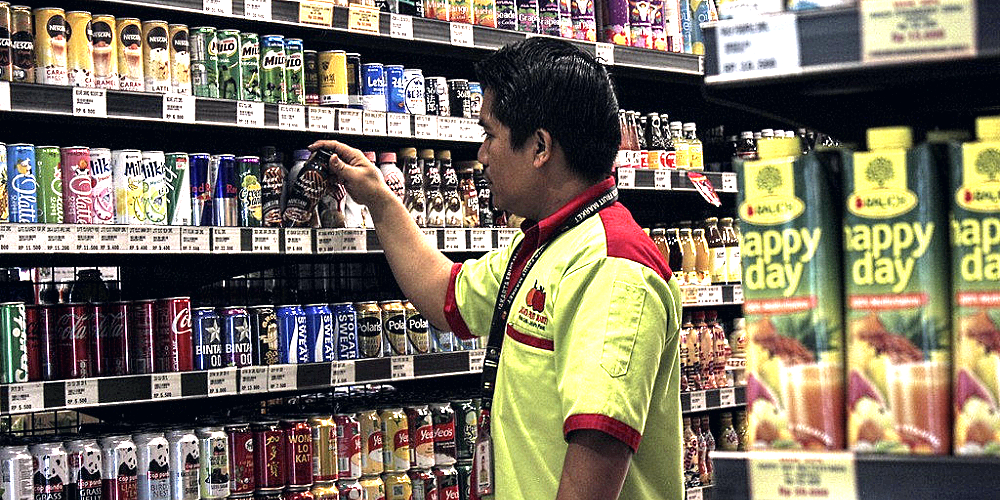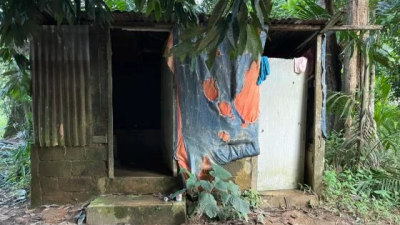
JAKARTA: On Dec. 18, 2023, President Joko “Jokowi” Widodo set the revenue target for excise taxes on sugar-sweetened beverages (SSBs) in 2024 at Rp4.38 trillion (US$280 million). The target is stated in Presidential Regulation (Perpres) No. 76/2023.
The policy followed an agreement between the Finance Ministry and the Budget Committee of the House of Representatives to add sugary packaged drinks to the list of items that would be subjected to a special income tax in the state budget for 2023.
In February 2020, the ministry proposed to the House an excise tax for SSBs, which was divided into three tariff levels: Rp1,500 per litre for sweetened beverages; Rp2,500 per litre for carbonated drinks; and Rp2,500 per litre for concentrates like energy drinks and coffee sachets.
With an estimated total SSB production of 808 million litres per year, the estimated revenue from all layers will total Rp6.25 trillion.
The next question is whether the excise will be effective in reducing the negative effect of SSB consumption.
Indonesia is not the only country to add this fiscal instrument into policy. According to a World Bank report in 2020, 48 countries tax SSBs.
France was the first to implement the policy in 2012, followed by Finland and Portugal in 2017, while Malaysia started enforcing it in 2019.
The mechanisms vary in those countries, with some applying ad-valorem tariffs, with others choosing specific tariffs.
In 2017, Saudi Arabia introduced the most extensive tax on SSBs in the world by raising the prices of soft drinks by 50 percent and energy drinks by 100 percent.
In 2019, neighbouring Qatar set the excise tax at 50 percent.
South Africa introduced a 10 percent excise tax on SSBs in 2018, while Malaysia raised excise duty on SSBs from 40 to 50 cents per litre in 2023.
The Finance Ministry expects a causal effect on budget expenditure, such as a rise in health spending, if the prices of the SSB products increase.
Lessons learned from other countries should be taken into account to predict outcomes from both the demand and supply side.
In 2017, the World Health Organisation (WHO) declared that excessive sugar consumption significantly contributes to the development of diabetes, obesity and dental problems.
According to the Health Ministry’s Basic Health Research 2018 (Risdeknas), 61.3 percent of respondents admitted to consuming sugary beverages more than once a day, around 30.2 percent drink sugary beverages between one and six times per week, while a mere 8.5 percent consume them fewer than three times per month.
The data show solid evidence that the Indonesian population has a significant tendency to consume sugary beverages at a considerable rate.
Diabetes and its associated complications, including severe illnesses, account for 33 percent of the healthcare expenses covered by the universal health insurance BPJS Kesehatan, which roughly amounts to Rp3.27 trillion.
BPJS Kesehatan allocated Rp108 trillion for diabetes treatment in 2019, up by 29 percent from the 2017 mark.
The excise tax on SSBs seeks to reduce the consumption associated with diabetes mellitus and other illnesses.
Cambridge University has published a research paper utilising data from 165 countries, validating the assertion that there is a significant connection between per capita sugar consumption and the prevalence of diabetes.
Excise on sugary drinks affects both tax revenue and inflation.
Higher prices will lead to lower purchasing power for several groups and reduce consumption. This will reduce sales and put pressure on government revenues, especially value added tax. Higher prices will drive inflation.
The finance minister stated that the potential inflation from the SSB tax is 0.16 percent. But again, the success of this policy depends on price elasticity on consumption.
There are two possibilities that will happen and lead to different outcomes.
First, people will reduce SSB consumption and shift to mineral water or healthier dairy products like milk.
As a result, the production of sugar-added beverages decreases but the community now becomes healthier.
The other possibility is people will not change their habits, the sugar tax does not distort purchases or business, and the risk of becoming diabetic will increase.
From the supply side, the policy may reduce sales in the short-medium but not in the long run.
Industry will learn from unfavourable circumstances and navigate the business to follow the government objectives.
Beverage companies will spend enough time to innovate their products to be more health-friendly and design their business to be more sustainable, using more health-friendly ingredients.
In the future, there will be more and more global demand for healthier drinks.
If the business sector responds correctly, their business will undoubtedly be sustainable.
It is strongly advised that the government learn valuable insights from countries like Mexico, whose government sets aside a portion of its revenue to install water dispensers in schools.
Alternatively, we can adopt China’s strategy of reinvesting revenues in infrastructure for physical exercise to improve people’s physical fitness and counteract the caloric intake from sugar-filled drinks.
An alternative approach entails enhancing the calibre of education and prioritising early childhood interventions, namely immunisation and provision of supplementary nutrition.
Additionally, it is crucial to educate both teachers and students regarding the impact of sugar on our overall well-being.
To sum up, we expect the tax excise on SSBs will lower sugar consumption and encourage people to choose healthier beverage products.
The excise revenue can be used to improve health facilities related to diabetics, while the industry correctly responds to the policy by doing research and development into more health-friendly products.
A healthy nation means not only lower health costs, but also higher productivity.
ADVERTISEMENT
ADVERTISEMENT








































